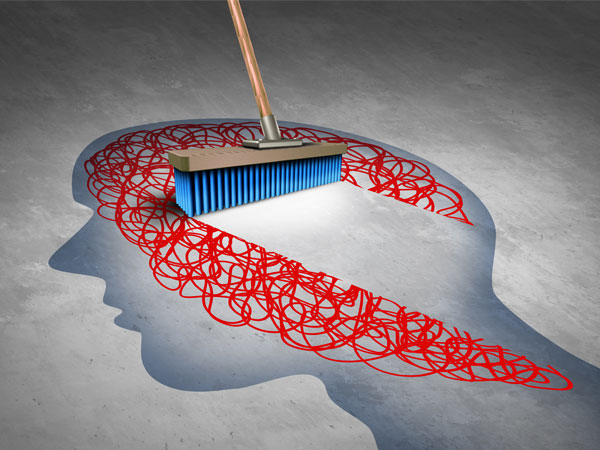Many of us think of decluttering and getting organized as something we “should” do, but why? Not only are there psychological benefits to being organized, but there are also psychological costs associated with clutter. Here is a brief look at the psychology of organization and decluttering.
The Psychological Costs of Clutter
Clutter is a source of stress.
A cluttered home or office can make us feel like we do not have control over our environment. We get stressed when we can’t find something we need or feel overwhelmed by the visual reminders of unfinished tasks. Clutter also makes us feel like we must constantly be “on,” because our space tells our brain that the work is not yet finished. If the feeling on its own isn’t bad enough, stress can also have negative effects on our mental, emotional, and physical health.
Clutter impedes productivity.
People who live in cluttered spaces are more likely to be chronic procrastinators according to a 2017 study published in Current Psychology. It’s not hard to imagine why. An excess of belongings can cause us to feel overwhelmed. Clutter also acts as a constant source of visual stimuli, distracting us from the task at hand. All this takes up valuable brain space that could otherwise be used for creativity and problem solving.
Clutter can make us feel guilty.
Have you ever felt that you “should” be more organized? Held on to something you didn’t need because you felt bad for buying it in the first place? Apologized about the state of your home to a surprise guest or friend on a video call? In far too many ways, clutter can be a source of guilt in our lives. When we stew in these feelings of guilt instead of making a life change, we can find ourselves in a downward emotional spiral.
The Psychological Advantages of Getting Organized
The most obvious psychological advantages of getting—and staying—organized are that it can help you avoid the negative effects mentioned above. Organized spaces support our productivity, enable us to relax and unwind at the end of the day, and free us from the emotional burden of guilt.
Getting organized can also have a positive effect on our psychological wellbeing. Because clutter is a series of postponed decisions, decluttering helps us improve our decision-making skills. The exercise of sorting through our belongings and quickly deciding what to keep, donate, or toss also boosts our self-confidence.
While you might expect this activity to be emotionally draining, it is actually far more likely to energize you. This is because organizing and decluttering increases the rate at which our brains release dopamine, a neurotransmitter known as the “pleasure chemical,” reports cognitive neuroscientist Sophie Scott.
Why Work with a Professional Organizer
Decluttering and getting organized is not easy, even when we know all the benefits it can offer. A professional organizer has empathy for the process and will motivate you to see it through. In addition to helping you declutter, a professional organizer will work with you to establish a sustainable organizational system that works for you and your family. Remember—when it comes to our mental, physical, and emotional health, there is no shame in asking for help. Getting organized can be a crucial part of our journey to wellbeing.
Dallas Professional Organizers
Totally Organized is a DFW-based team of certified professional organizers ready to transform your space into a productive environment. Founded and run by a Certified Productive Environment Specialist, Totally Organized offers full-service solutions for all your organizing needs. If you feel overwhelmed by your space but are determined to make a change, reach out today for a free consultation.

